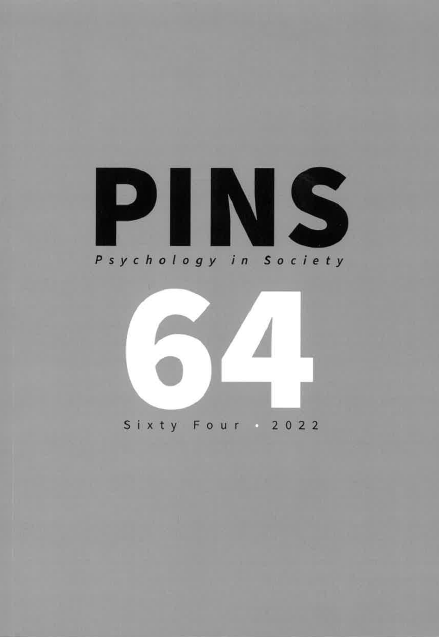The relationship between the COVID-19 pandemic and environmental attitudes and what this means for environmental justice
DOI:
https://doi.org/10.57157/pins2022Vol64iss1a5457Keywords:
Social justice, Environmental justice, Climate change, Pandemic, COVID-19, Climate justice, Environmental attitudesAbstract
Government, policy, intervention campaigns, and communication strategies tend to separate social environmental issues from green environmental issues, and more recently, placing emphasis on responding to the pandemic. Interventions with an individualistic focus has also received criticism. Isolating issues from each other makes them deceptively simpler to deal in the short term, but at the cost of their interconnectedness impacting how future disasters might be managed. This myopic approach is of particular concern considering how climate change is increasingly impacting South Africans. This paper proposes two central questions: given evidence of the likely zoonotic source of COVID-19, how have relative rankings of the green environment changed between 2016 (pre COVID-19) and 2021 (COVID-19), and what does this mean for the study of environmental justice? A study conducted with 721 South Africans in 2016 aimed to establish where green environmental issues ranked compared to social and economic concerns. Subsequently, the pandemic provided an opportunity to conduct a follow up study with 665 South Africans to determine whether issues of concern are different during a pandemic. The results show that in the face of evidence of the zoonotic origins of COVID-19, there were little to no shifts in the ranking of green environmental issues in 2021 compared to 2016 among a sample of South Africans. The findings from this study suggest that red and brown issues could be powerfully leveraged to mobilise a range of movements for environmental justice in South Africa.
Downloads
Downloads
Published
How to Cite
Issue
Section
License
This journal is an open access journal, and the authors' and journal should be properly acknowledged, when works are cited.
Authors may use the publishers version for teaching purposes, in books, theses, dissertations, conferences and conference papers.
A copy of the authors’ publishers version may also be hosted on the following websites:
- Non-commercial personal homepage or blog.
- Institutional webpage.
- Authors Institutional Repository.
The following notice should accompany such a posting on the website: “This is an electronic version of an article published in PINS, Volume XXX, number XXX, pages XXX–XXX”, DOI. Authors should also supply a hyperlink to the original paper or indicate where the original paper (http://www.journals.ac.za/index.php/pins) may be found.
Authors publishers version, affiliated with the Stellenbosch University will be automatically deposited in the University’s’ Institutional Repository SUNScholar.
Articles as a whole, may not be re-published with another journal.
The copyright of the article(s) lies with the author(s).
The copyright of the journal lies with PINS-psychology in Society.
The following license applies:
Attribution CC BY-NC-ND 4.0 - https://creativecommons.org/licenses/by-nc-nd/4.0/

